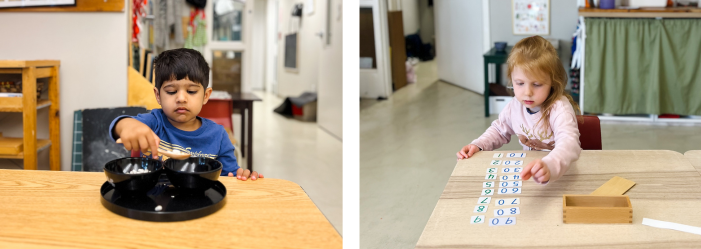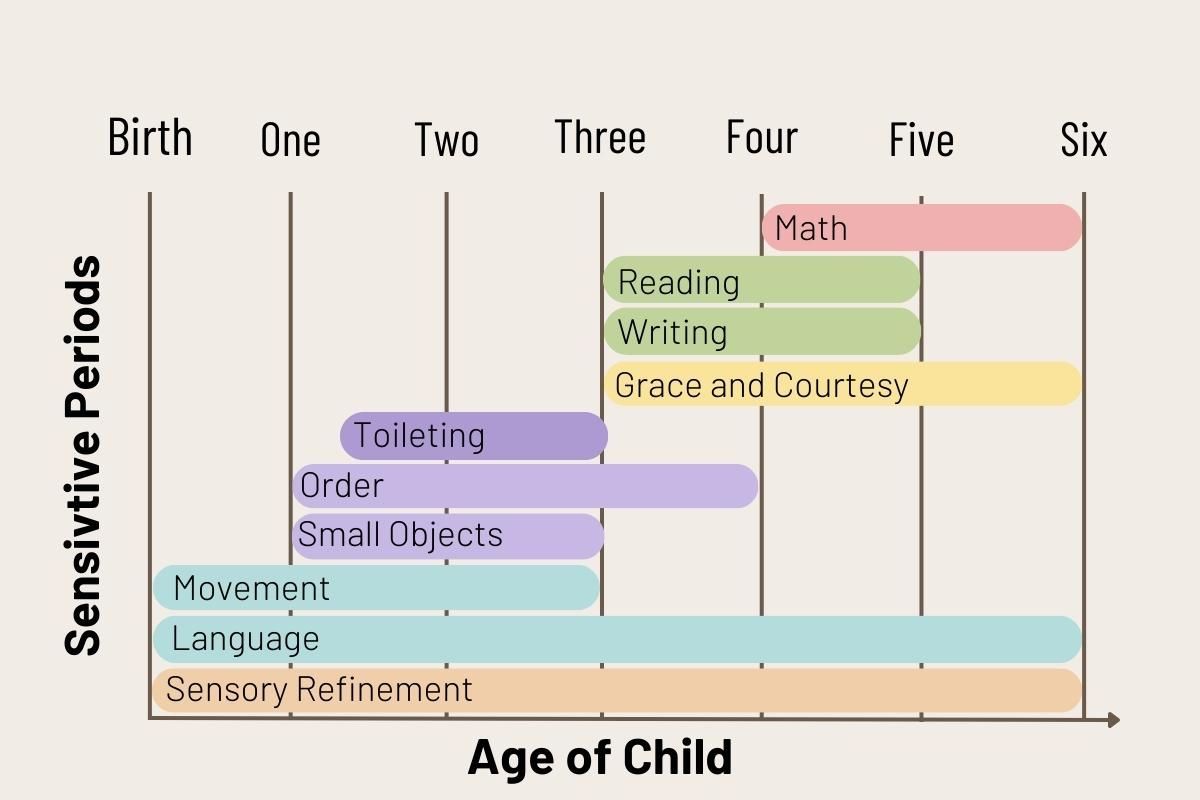The year it comes together
It's admissions season across the GTA and the time of year we see parents look to their children’s educational future. Parents of Casa students, in particular, begin to weigh multiple factors including the cost benefits of public schools, perceptions of French Immersion, and the marketing pressures of other private schools (“If we don’t enroll in JK we won’t get in for Elementary!”)
The three year cycle is one of the primary benefits of the Montessori method and moving on for Kindergarten is one of the most common mistakes we see Casa parents make.
Don’t let go of your investment. Here are 3 important reasons why we think every family should stay for the 3rd year.
When spooning beans becomes math

Montessori materials are intentionally, specifically sequenced in a continuum aligned with the sensitive periods of development.

In the preliminary work of the first two years, children develop refined fine motor skills, an innate understanding of sequence and order, practiced concentration & frustration tolerance. In their third year, students use these hard-won skills with more challenging materials to investigate addition, multiplication, subtraction, and division.
Ditto for language and culture.
The materials students use to explore these more advanced academic concepts relate directly to materials they’ve progressed through since their first day in Casa (and YPC!)
Not based on a single pedagogy, Kindergarten classes can rely heavily on arbitrary manipulatives and worksheets to introduce “brand new” concepts in numeracy and literacy.
Individualized and limitless

Expectations for 5 year olds in Kindergarten are understandably lower than in a Casa classroom. Kindergarten can be a child’s first experience with formal learning. Teachers in conventional classrooms are expected to teach the same concept at the same time to large classes with a wide a diversity of ability.
Alternatively each 5 year old in a Casa classroom is progressing independently with lesson plans customized to their specific development.
If your child is diving into language work, the only limit to how much they can access within a Casa classroom is the pace at which they consolidate previous concepts.
In comparison, a great Kindergarten teacher may be able to offer your child more books to read and more worksheets to complete, but they are unlikely able to offer deeper instruction of more advanced concepts.
Back in the Casa classroom, while your language enthusiast motors through phonograms, a child compelled by different work can pursue other areas of focus at a pace that suits them.
In this example, both children are exposed to the concepts the other is introduced to and will be inspired (and encouraged!) to explore these other areas themselves. Each child is getting exactly what they need when they need it.
Foundations for future success

3-year cycles and mixed-aged groupings bear fruit in the final year of Casa in a way that single year, single-age programs can't replicate.
Third year Casa students have access to bigger work, more collaborative projects, and they become the leaders of their classroom environments. They have opportunities daily to offer assistance to their younger peers, practice pro-social behaviours, and develop conflict resolution skills.
In witnessing and experiencing the progress from novice to expert, the 3rd year is where we see the cultivation of perseverance, self-discipline, curiosity, self-assurance, conscientiousness, and determination. Qualities of character that studies indicate will determine a student’s future success at school and beyond.
Learn more
Using all the skills they've developed within their classroom environment from the previous years, your 5 year old will explore more advanced academic concepts while cultivating the internal qualities for continued success.
If you want to learn more about the benefits of the 3 year cycle and what your child can be looking forward to, please reach out to your classroom teacher or school Principal. We are nerds for Montessori and would love to share the research with you.



